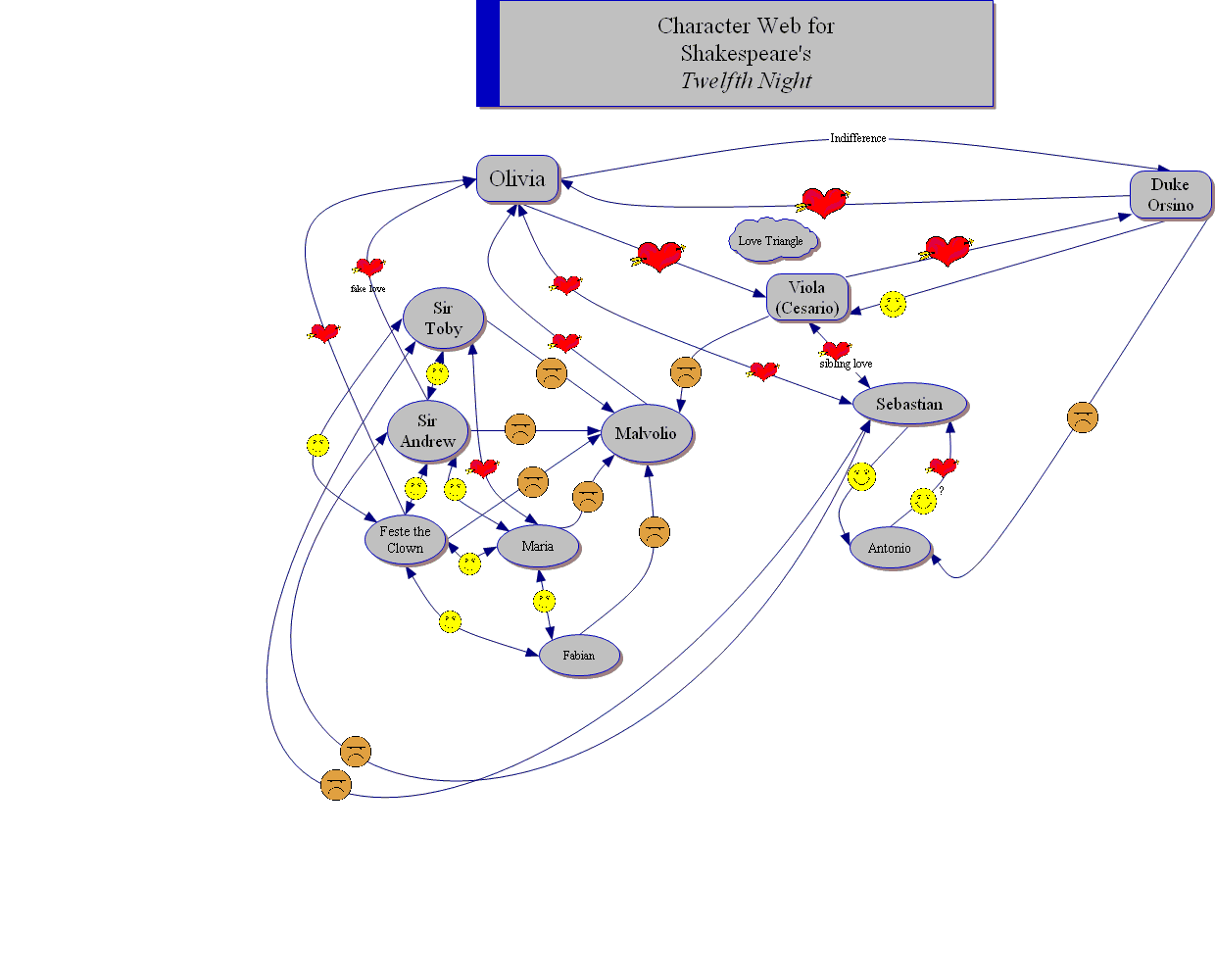There are three or four characters that spend the play alternating between speaking on behalf of themselves and speaking on behalf of a patron. What's interesting to track, however, is who does it with permission (such as Feste and Viola) and who does it without permission (lookin' at you, Malvolio). Speaking on behalf of a powerful social figure such as Orsino or Olivia kind of gives these envoys exception to the social order, and the complicated messes that ensue are direct responses to this disruption of power.
For example, Malvolio crosses a line (in the minds of Sir Toby Belch, Maria, Feste, and Sir Andrew Augersomething) in act 2 scene 3 when he interrupts their merrymaking by claiming Olivia's authority.
Malvolio: My masters, are you mad? or what are you? Have ye no wit, manners, nor honesty, but to gabble like tinkers at this time of night? Do ye make an alehouse of my lady's house, that ye squeak out your coziers' catches without any mitigation or remorse of voice? Is there no respect of place, persons, not time in you?
Malvolio: Sir Toby, I must be round with you. May lady bade me tell you, that though she harbours you as her kinsman, she's nothing allied in your disorders. If you can separate yourself and your misdemeanors, you are welcome to the house; if not an it would please you to take leave of her, she is very willing to bid you farewell.In return, Sir Toby Belch and company claim Olivia's voice in order to teach Malvolio a lesson by writing letters in her voice to lead Malvolio into a net made by his own ambition and social offenses.
Act 2 scene 3
Viola, acting even more completely as proxy for Orsino, gets herself into trouble as Olivia uses her imagination to create a Cesario that rivals Orsino's vision of Olivia.
Olivia Here, wear this jewel for me, 'tis my picture;
Refuse it not; it hath no tongue to vex you;
And I beseech you come again to-morrow.
What shall you ask of me that I'll deny,
That honour saved may upon asking give?
Viola Nothing but this; your true love for my master.
Act 3 scene 4
Viola The honourable lady of the house, which is she?Eventually characters speak on behalf of each other without even realizing it, i.e. Sebastian for Cesario/Viola, Cesario/Viola for Sebastian. Additionally, Sir Toby fabricates on behalf of Olivia, Feste on a priest, etc.
Olivia Speak to me; I shall answer for her.
Your will?
Act 1 scene 5

This is one of the reasons that I love Twelfth Night! It does a great job of interlocking all the of the characters and mixing their voices together so you are never quite sure who is saying what for whom. Your post does a good job showing this intricacy.
ReplyDelete